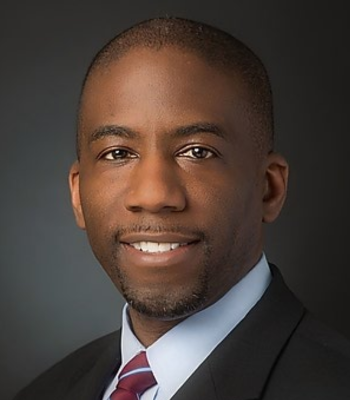Dr. Ted James

Topic Categories:
Fee Range: Contact Speaker Exchange Agency
- Medical Director and Executive Coach
- Faculty for Harvard Executive Education
- Leader in Health Care Transformation
*Fee ranges are presented as a guideline only. Speaker fees are subject to change without notice. For an exact quote, please contact your Speaker Exchange Agency representative.
Dr Ted James is an internationally recognized speaker and executive coach who is passionate about transforming health care through innovation and leadership development. Drawing on over 20 years of experience as a physician leader, educator, and healthcare management consultant, he inspires individuals to become engaged change agents who have a positive impact on organizational culture. He believes that the only way to succeed in health care is to promote new ways of meeting patients’ needs and to create clinical teams that thrive.
As a medical director and lecturer within the Harvard healthcare system, Dr. James has extensive experience with efforts to advance health care. He leads international programs focused on digital health, clinician engagement, and patient experience. He enjoys collaborating with healthcare executives and industry experts from around the world, as well as sharing his knowledge through organizations such as the Institute for Healthcare Improvement and the National Academy of Medicine.
He is an author who writes about the trends shaping the future of medicine and strategies for transforming the healthcare ecosystem. Dr. James has received numerous awards for his contributions to teaching, leadership, and quality. One of his greatest professional satisfactions comes from partnering with others to reimagine healthcare in ways that improve organizational performance and the wellbeing of patients, care teams, and communities.
The clinical workforce is exhausted and straining to hold on after more than a year of trauma from the pandemic and other ongoing workplace stressors. Due to the current situation, approximately one out of every five clinicians is considering leaving the field. However, health care leaders can be proactive in supporting clinical teams and ensuring their long-term sustainability.
As the pandemic’s effects begin to materialize we are seeing more and more that the healthcare industry is suffering from collective trauma. You can help health care teams heal from trauma and start to view adversity as an opportunity for personal and organizational growth with these three approaches to helping your team rebound.
- Reflect – Too often, we fall into the pattern of reacting to crisis after crisis without pausing to contemplate our experiences. Reflecting on negative experiences can lead to increased self-awareness, the discovery of new possibilities, better interpersonal relationships, a greater appreciation for life and inner growth. Experts agree that sharing stories of trauma can be empowering and leads to the formation of peer-support relationships.
- Celebrate Wins – While acknowledging loss is appropriate and part of the healing process, we must be careful not to focus solely on the negative. Seeing progress, no matter how small, can energize and encourage people to keep going. So, I encourage leaders to seek out wins and share them widely.
- Visioning – Many organizations are experiencing a lack of communication, with people still waiting to hear a vision and detailed plan for moving past the pandemic. You can be proactive in sharing the specific approaches for how the organization plans to move forward, including each team member’s role in this strategy.
While it may feel like we are still in the thick of it, as leaders, it is important to provide healing and hope for our healthcare heroes.
Physician leadership is an essential component of quality improvement and positive healthcare transformation. Clinicians at all levels are needed to actively engage in charting a new course for healthcare. Inspired and effective clinical leaders bring about changes resulting in improved patient outcomes, greater professional satisfaction and enhanced performance of healthcare organizations.
Learning Objectives:
• Describe the role and impact of physician leadership in healthcare organizations
• Employ effective methods to develop transformational clinical leaders
• Define strategies to successfully achieve clinician engagement
• Identify characteristics of effective physician champions
• Develop approaches to achieving clinician engagement
• Identify characteristics of effective physician champions
Effective clinical leadership is an essential component of improvement initiatives in healthcare transformation. Clinicians at all levels are needed to actively engage in charting a new course for healthcare. Inspired and effective clinical leaders bring about changes that result in better patient outcomes, greater professional satisfaction and enhanced performance of healthcare organizations.
Learning Objectives:
• Describe the impact of physician leadership on healthcare transformation.
• Apply proven strategies to develop transformational clinical leaders.
• Implement techniques to successfully engage and motivate clinicians for change.
• Develop skills to become a more effective and inspirational clinical leader.
Healthcare is transforming into a value-based system where new metrics and outcomes will define the success of individual clinical practices and health care organizations. Clinical leaders must be able to design care models that optimize the value equation.
Learning Objectives:
• Define the value-based framework for performance improvement in healthcare
• Design innovative, frontline approaches to eliminate waste while improving quality
• Develop models of accountability for value through integrated practice units
• Develop approaches to achieving clinician engagement
Patient experience continues to play a dynamic role in healthcare. Ensuring the highest level of excellence is at the core of what we aim to deliver in patient care. There is a growing demand to benchmark patient experience/satisfaction in healthcare. Strategies to successfully enhance the patient experience of care are paramount in the emerging healthcare environment and help to retain our focus on the greatest priority of healthcare—the patient.
Learning Objectives:
• Evaluate the data linking patient experience to clinical outcomes
• Recognize best practices that result in top rankings on patient surveys
• Identify the tangible benefits of managing patient experience on organizational performance
Patient experience continues to play a critical role in emerging healthcare systems. Organizations must successfully incorporate patient needs into competitive strategy, marketing and operational management. Likewise, research and experience indicate that physician work conditions have a tremendous impact on the quality of clinical care provided and the overall performance of healthcare organizations. This workshop is designed to equip clinicians and administrators with the skills necessary to ensure the highest level of quality and excellence in patient care delivery, with focus also given to optimizing physician experience. Participants will explore strategies to enhance patient and physician experience, develop patient-centered care models and leverage quality metrics, including patient-reported outcomes to benchmark and advance clinical performance.
Learning Objectives:
• Explore the link between patient experience and clinical outcomes
• Apply best practices for improving patient satisfaction and loyalty
• Develop strategies to improve physician-patient interactions and avoid clinician burnout
• Identify the tangible benefits of patient-centered care on organizational performance
A growing number of reports stress the ongoing urgency for quality improvement and safety efforts in healthcare. High-reliability organizations succeed in ensuring patient safety and driving performance improvement. Engaging frontline teams in the process of systems redesign is an essential component to establishing a “safety culture” and delivering high-quality healthcare.
Learning Objectives:
• Develop an organizational framework for patient safety at the system level
• Apply strategies to effectively utilize process improvement tools
• Identify key components of learning organizations and traits of resiliency
• Integrate principal characteristics of high reliability into your organization’s culture
Bringing about transformational change in patient care is not a simple task. However, it is a requirement for healthcare
organizations striving to move forward and succeed in a value-driven healthcare system. Establishing a culture of clinical
innovation and transformational leadership is a necessary step to achieve sustained, reliable, system-wide improvements in
patient care. This presentation will review proven models and techniques to support healthcare organizations in their efforts to pursue fundamental system redesign and achieve dramatic improvements in clinical quality. Using best practices of Evidence-Based Leadership SM(EBL), participants will gain practical insight into their own leadership capacity. Inspired and effective clinical leaders bring about changes that result in improved patient outcomes, greater professional satisfaction and enhanced performance of healthcare organizations.
Learning Objectives:
• Apply proven strategies to successfully engage clinicians and develop transformational clinical leaders
• Develop an organizational framework for system-wide quality improvement and establishment of a “just culture”
• Leverage clinical pathways to improve quality while reducing waste
• Integrate principal characteristics of high reliability into your organization’s culture
• Implement a framework for translating local improvements to system-wide change
Want to bring Dr. Ted James to your next event? Please tell us a little about your event, and we will get back to you shortly!




